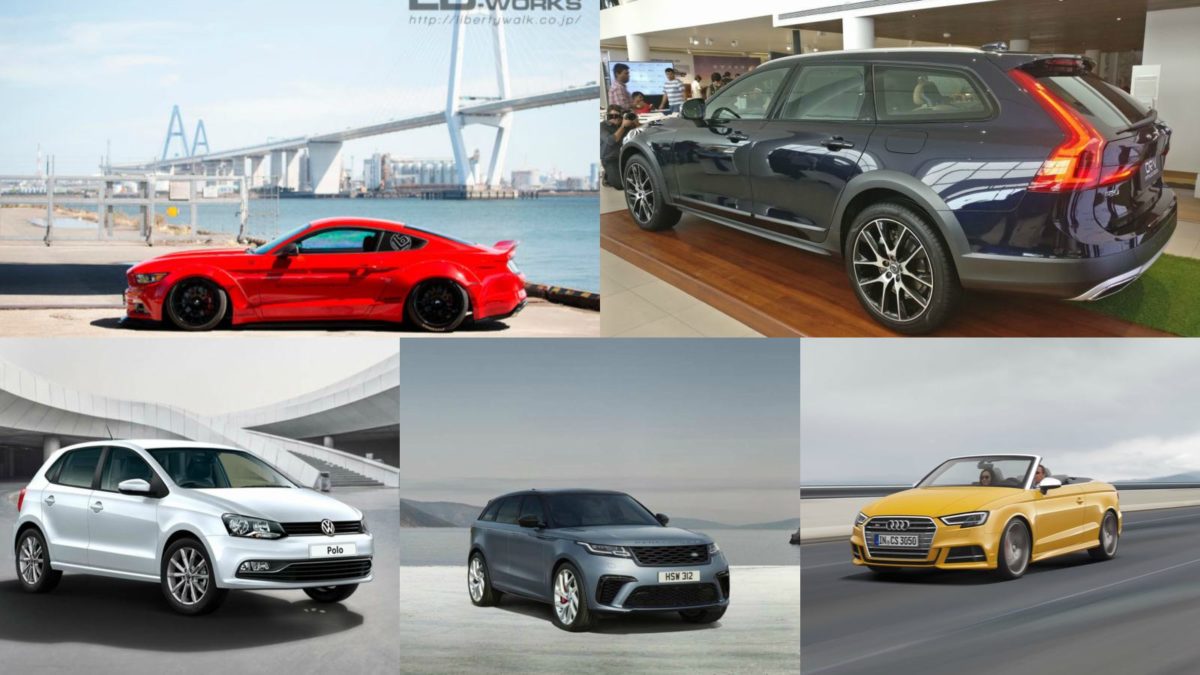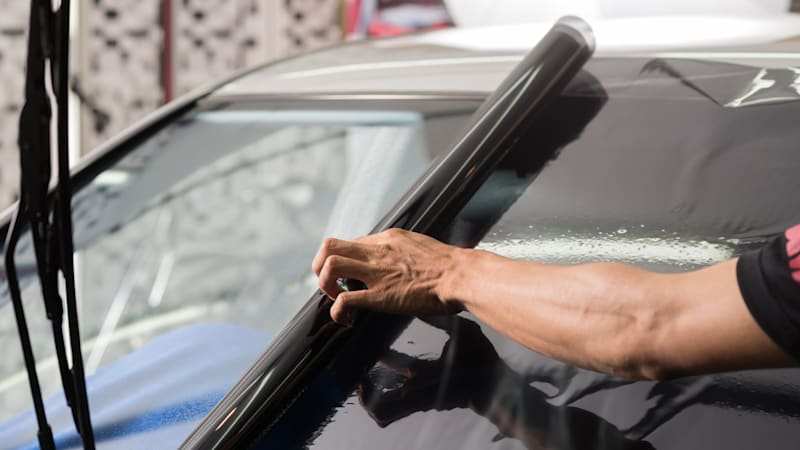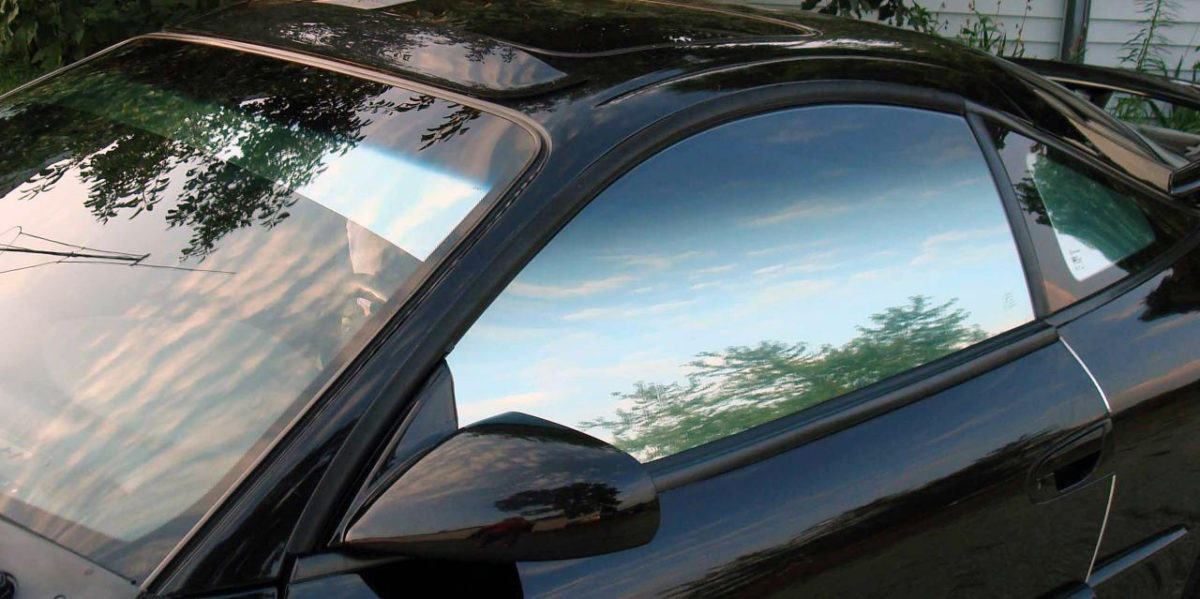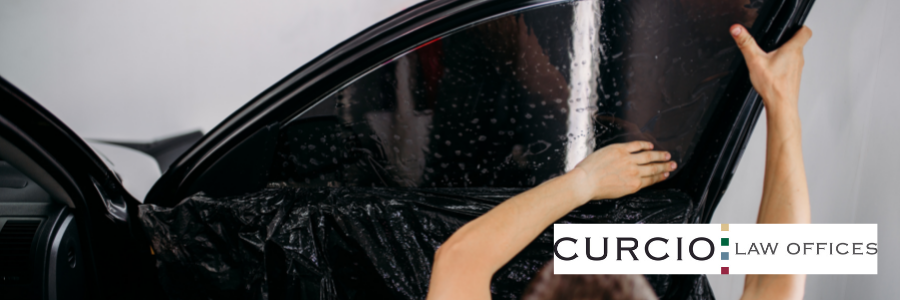Laws regarding car window tinting in Illinois have been in place since 2009, which is more than a decade. Illinois tint laws are important for every new and seasoned driver to adhere to. As a driver or vehicle owner, adhering to the window tint rules and regulations is essential for both safety and security. Too much tint on the windows can make it hard to actually see the road, especially at night. This poses major risks to drivers. If you suffered injuries because of the darkness of someone’s window tint, you might have a case. Contact a Chicago personal injury attorney with Curcio & Casciato at 312-321-1111 today.
Illinois Automotive Tint Law
The car window tinting business was worth just under $10 billion in 2019 and is likely to keep rising. It’s a highly popular market, but as a customer, you should be aware of the hazards. For vehicle window tint, each state has its own set of standards and restrictions. As an Illinois driver, you must be aware of and follow the state’s tint restrictions.
Unfortunately, tint restrictions change more frequently than other sorts of laws, so being informed will help you save money and keep points off your driving history. We’ll go over all you need to know about Illinois tint law in this blog.
Is 35 or 20 Tint Darker?
From 5% to 90%, car windows can have widely different tint darkness depending on the state you live in and the type of vehicle you drive. The percentage you see refers to the amount of visible light transmission (VLT) that can pass through the window tint. Therefore, a lower percentage means a darker tint, as less VLT passes through it.
Many people choose to have their car windows tinted to block out light and UV rays from the sun. They also do it for privacy reasons. Regardless, Illinois window tint laws state that for the average passenger vehicle, your window tint may not exceed 35%.
What Are the Illinois Window Tint Law Penalties?
For a multitude of reasons, window tinting is appealing. It cools you down and shields you and your property from UV radiation. It also protects your privacy and security by making your glass shatterproof. While such advantages are appealing, too much hue can be detrimental. Too dark a tint compromises the safety of you, your passengers, and other drivers on the road.
It may also make the task of law enforcement more complicated. If the window tint is too strong to see through, recognizing drivers and passengers after an accident is extremely hard. The amount of light that can travel through your window tint is measured by law enforcement authorities in Illinois using a piece of equipment. It’s conceivable that you’ll be issued a citation if you exceed the legal limit.
Window tint penalties are not to be taken lightly. You’ll have a minor offense on your record as well as a fee if you get a ticket for your tint percentage. You might face a fine ranging from $50 to $500 for a first-time infraction. The fine ranges from $100 to $500 for numerous violations. Being informed of the law is the greatest approach to avoid window tint charges in the state of Illinois. If you choose an aftermarket window tint, be sure your windows meet all legal requirements.
What Is the Legal Car Tint in Illinois?
How the degree or level of tint is determined is an important piece of information to have when it comes to your automobile windows. Visible light transmission, or VLT, is how police measure window tint. VLT measures how much light can flow through your window tinting and is the deciding element in whether or not your automobile windows are illegal.
The greater the visible light transmission, the greater the amount of light that can pass through. The lesser the LVT, the deeper the tint on your automobile windows. The tint percentage permitted in Illinois varies depending on the window and the kind of vehicle. These details are outlined below.
Passenger Vehicles vs Multipurpose Vehicles

Automobiles in Illinois are divided into two categories by tint laws. Sedans, coupes, station wagons, convertibles, hardtops, and hatchbacks are examples of passenger vehicles. These vehicles are classified as passenger vehicles since they are designed to transport a single person or a family.
Multi purpose vehicles are vehicles like trucks, vans, SUVs, RVs, and minibusses. Multi purpose vehicles are heavier than a passenger vehicle, and either carry a lot of cargo or several people at one time. The two categories of vehicles we outlined have their own specific laws and rules due to how different their functions are.
Back Window, Front Window, and Side Windows
Illinois tint law states that passenger vehicles cannot have car windows with tint darker than 35%. However, multipurpose vehicles are restricted to 50% tint. Tinting below 50% will result in penalties.
In the state of Illinois, rear windows are identical to front windows. You’re permitted a 35% VLT. Anything more than that is illegal. You may darken your windows as much as you wish with multi-purpose automobiles. If it entails a 5% tint, you’re free to go ahead and do it.
The 35% limit applies to passenger vehicle side windows. For multipurpose vehicles, front side windows are limited to 50%, while back side windows can use any tint level.
Windscreens

In Illinois, the degree of your windshield that can be tinted is regulated by windshield laws. In Illinois, having more than the upper 6 inches of your windscreen tinted is forbidden for passenger and multi-purpose cars.
Surprisingly, only 35 percent of the rear windshield is allowed to be tinted in passenger automobiles. There are no restrictions on how much of the rear windshield can be darkened in multi-purpose cars. While window tint on your windshield is an excellent method to hide bothersome and unwelcome light while also decreasing heat, too much tinting can make it impossible to see out. Driving becomes a perilous undertaking for you and the people around you as a result of this.
Reflection

Reflective tint is not permitted on any of your windows in Illinois. Any window tint you apply to your car, whether it’s a passenger car or a utility vehicle, must not be reflecting. This is crucial to know since certain tints contain reflecting particles of metallic material, which might result in fines from police officers.
Other Window Tinting Rules and Regulations
When it comes to Illinois window tint law, there are a number of other rules to follow. If your car’s back windows are darkened, for example, you must have twin side mirrors. Because tint might reduce your vision, using side mirrors will guarantee that you can monitor your blind zones without difficulty. Furthermore, there are no limits on the tint colors that you can employ in Illinois. You still have a lot of options when it comes to customizing your automobile.
Can You Get Pulled Over for Tint in Illinois?
Yes. If your window tint violates Illinois tint laws, you may be pulled over. If the tint seems to be overly dark, reflecting, or if you have tinting on your windscreen, a police officer will stop you. It might be difficult to accurately quantify VLT. A cop may simply pull you over to inspect your windows and ask you a few questions about the tint darkness. It’s usually a good idea to save the receipt for the window tinting material you buy so you can keep track of its VLT rating.
Medical Exemptions
It’s important to note that there are some medical exemptions to Illinois window tint law. In the past, those with qualifying exemptions simply needed a doctor’s note. Today, however, you must apply for a tinted window license plate from the Illinois Secretary of State.
Those who suffer from medical conditions, such as albinism or lupus, can obtain these special plates. You can either get one of these plates for yourself or for someone else in your household who suffers from a qualifying condition.
Contact a Chicago Personal Injury Lawyer Today
If you’re unsure about how to identify legal tinting on your car, or if someone’s tint darkness caused an accident in which you suffered injuries, you might need an attorney. At Curcio & Casciato, our Chicago car accident lawyers have extensive experience in car accident cases of all kinds. We have the necessary knowledge of Illinois state law and the experience in litigation necessary to fight on your behalf. To schedule a consultation about your personal injury case, window tint darkness, or even medical exemptions, we’re here for you. Call today at 312-321-1111 or fill out our online intake form.



